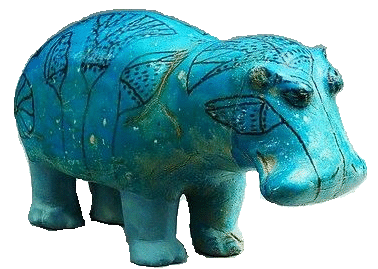
5/16 ヘーゲル「精神現象学」1807:はじめに
5/16 Einleitung,
Phänomenologie des Geistes, 1807

☆ ★このページはヘーゲル「精神現象学」の序文の後につづく「はじめに」の部分です。 INTRODUCTION, The Phenomenology of Mind (Einleitung, Phänomenologie des Geistes) ヘーゲル「精神現象学」の一般的解説は「ヘーゲル『精神現象学』1807ノート」を、参照してくだ さい。課題書とテキストについては「G.W.F.ヘーゲル『精神現象 学』1807年への入門」を参照してください。
☆
| Weil
nun diese Darstellung nur das erscheinende Wissen zum Gegenstande hat,
so scheint sie selbst nicht die freie, in ihrer eigentümlichen Gestalt
sich bewegende Wissenschaft zu sein, sondern sie kann von diesem
Standpunkte aus, als der Weg des natürlichen Bewußtseins, das zum
wahren Wissen dringt, genommen werden; oder als der Weg der Seele,
welche die Reihe ihrer Gestaltungen, als durch ihre Natur ihr
vorgesteckter Stationen, durchwandert, daß sie sich zum Geiste läutere,
indem sie durch die vollständige Erfahrung ihrer selbst zur Kenntnis
desjenigen gelangt, was sie an sich selbst ist. |
【5】
こ
の表現は、現れている知識のみを対象としているため、それ自体は、その固有の形態で自由に動く学問ではないように見えるが、この観点からは、真の知識に到
達しようとする自然意識の道、あるいは、その性質によってあらかじめ決められた段階を、完全な自己の経験を通じて通過し、精神へと純化していく魂(=精
神)の道の過 程として捉えることができる。あるいは、魂(=精神)が、その性質に
よってあらかじめ定められた段階として、その形態の系列を通り抜け、自己の完全な経験を通じて自
己の本質に関する知識に到達することにより、精神へと浄化される道として捉えることもできる。 |
☆ ヘー ゲル精神現象学はじめに(第5節と第6節)
★ ハイデガーのコメンタリー
☆
| ・絶対者の臨現の、省察のいとぐちをさぐる
(112) |
|
| THE FIFTH SECTION initiates that consideration. Science
itself, in presenting phenomenal knowledge, must by means
of that presentation and in the course of it achieve its own
complete appearance. Thus, it does not make a blustering
entrance just anywhere. Its entrance consists in its identifying
itself step by step as what it is. Where is the stage on
which this identification takes place? Where else but before
the eyes of natural representation. This representation follows
phenomenal knowledge step by step through the multifariousness
of its appearances, and thus follows through all
the waystations in which merely phenomenal knowledge
divests itself of semblance until it finally presents itself as
true knowledge. The presentation of merely phenomenal
Jmowledge escorts natural representation up to the gates of
absolute knowledge. The presentation of merely phenomenal
knowledge is the path of natural consciousness toward
science. And because the semblance of untruth falls away
more and more along the way, this path is a path of the
soul's purification into Spirit. The presentation of merely
phenomenal knowledge is an itinerarium mentis in Deum.
What could be more welcome to natural consciousness,
and more useful to philosophy, than a description of the
journey along this path? Since the path so described runs
parallel to· the appearances, the phenomena, it is a path of
experience. Empiricism, which pursues data, deserves to be
preferred by all forms of knowledge over mere construction
and deduction. The presentation of phenomenal knowledge,
phenomenology, lets itself be guided by the phenomena. It
follows the path of experience. It ushers natural representation
step by step into the domain of the science of philosophy.
This is indeed how matters stand with the presentation
of phenomenal knowledge, if we look at it with the eyes of
natural representation. Natural representation remains always
referred to what it believes to have before it at the
given moment. But can any relative belief • ever behold
absolute knowledge? No. That which presents itself before
natural consciousness under the name of a merely phenomenal
knowledge, which in tum will supposedly lead to
true knowledge, is mere semblance. Yet even philosophy
believes to this day that the Phenomenology of Spirit is an
itinerarium, the description of a journey, which will lead
everyday consciousness to a scientific knowledge of philosophy.
However, what the Phenomenology of Spirit so understood
appears to be is not what it is in essence. But this
error is not accidental. It follows in the train of the book's
essence, overtakes and thus conceals it. Taken by itself, the
impression is misleading. The natural representation, which
has here crept into philosophy, takes phenomenal knowledge
for a merely appearing knowledge behind which a nonappearing knowledge holds itself in concealment. But the
presentation is by no means the presentation of merely phenomenal
knowledge as distinguished from true knowledge,
the true knowledge to which the presentation is still to lead
us. Rather, the presentation is merely the presentation of
phenomenal knowledge in its appearance. This "merely"
does not say that the presentation is not yet science-it says
that it is not yet science in all respects. The appearance of
phenomenal knowledge is the truth of knowledge. The
presentation of phenomenal knowledge, in its appearance,
is itself science. From the moment in which the presentation
begins it already is science. Hegel says: "In view of the fact
that this presentation has for its object only phenomenal
knowledge, the presentation itself seems to be unscientific.
... But it can be regarded .... " Hegel does not speak of
merely phenomenal knowledge, nor does he say that the
presentation is only developing into science, nor does he
assert that the presentation, if it is to be grasped in its
essence, cannot be understood in any other way than as an
itinerarium.
However, the presentation does not by any means guide
natural representation through the museum of the shapes of
consciousness, in order to send it off at the end of the tour,
through a special door, into absolute knowledge. Rather,
with its first step if not before then, the presentation dismisses
natural consciousness as that consciousness which in
its very character remains wholly incapable of following the
presentation. The presentation of phenomenal knowledge is
not a path that natural consciousness can tread. Nor is it a
path which with each step gains distance from natural consciousness,
and then somewhere or other along the way ends
up in absolute knowledge. But the presentation is a path
nonetheless; it nonetheless runs constantly to and fro in an
"in-between" that prevails between natural consciousness
and knowledge.
|
第 5
節では、その考察を始める。現象的知識を提示する科学は、その提示によって、そしてその過程において、自らの完全な姿を現さなければならない。したがっ
て、科学はただどこかに威勢よく登場するのではありません。その登場とは、科学が段階的に自らの本質を明らかにしていくことにあります。この本質が明らか
になる舞台はどこにあるのでしょうか?自然表象の眼の前以外にあるだろうか。この表象は、現象的知識の多様な現れを段階的に追跡し、現象的知識が単なる現
象の様相を脱ぎ捨て、ついに真の知識として現れるまでのすべての段階を通り抜ける。現象的知識の提示は、自然表象を絶対的知識の門まで導く。現象的知識の
提示は、自然意識が科学へと向かう道である。そして、虚偽の表象が道中で次第に剥がれ落ちていくため、この道は魂の精神への浄化の道である。現象的な知識
の提示は、神への心の旅路である。自然意識にとってこれほど歓迎すべきもの、哲学にとってこれほど有用なものがあるだろうか?この道に沿った旅の記述は。
この道は現象、表象と並行して進むため、経験の道である。データを追及する経験論は、あらゆる知識形態において、単なる構築や推論よりも優先されるべき
だ。現象的知識の提示、現象学は、現象に導かれる。それは経験の道をたどる。それは自然表象を段階的に哲学の科学の領域へと導く。これが、自然表象の目で
見た現象的知識の提示の真実の姿だ。自然表象は、常にその瞬間前にあると信じるものに常に参照されている。しかし、相対的な信念が絶対的な知識を捉えるこ
とはできるだろうか?できない。自然意識の前に現象的知識の名の下に現れるもの、それが真の知識へと導くとされるものは、単なる幻影に過ぎない。しかし、
哲学は今日に至るまで、精神の現象学が、日常意識を哲学の科学的知識へと導く「イテリナリウム」、すなわち旅の記述であると信じている。しかし、このよう
に理解された『精神の現象学』が示しているものは、その本質ではない。しかし、この誤りは偶然ではない。それは本書の本質から必然的に生じ、それを追い越
して隠蔽する。単独で捉えると、その印象は誤解を招く。ここに哲学に忍び込んだ自然的表象は、現象的知識を、その背後で隠蔽されている非現象的知識の単な
る表れとして捉えている。しかし、この提示は、真の知識と区別される単なる現象的知識の提示ではない。むしろ、この提示は、現象的知識の出現としての提示
に過ぎない。この「単なる」は、提示がまだ科学ではないと言っているのではない。それは、提示がまだすべての点で科学ではないと言っているのだ。現象的知
識の出現は、知識の真実である。現象的知識の表象は、その出現において、それ自体が科学だ。表象が始まる瞬間から、それはすでに科学だ。ヘーゲルは言う:
「この表象の対象が現象的知識のみであるという事実を考慮すると、表象そのものは非科学的のように見える。...
しかし、それは次のように見なすことができる……」ヘーゲルは、単なる現象的知識について言及していないし、提示が科学へと発展しているだけだとも言って
おらず、提示が本質的に把握されるためには、イテリナリウムとして理解される以外の方法はないと主張しているわけでもない。しかし、提示は、自然的表象を
意識の形態の博物館を通過させ、ツアーの最後に特別な門を通って絶対的知識へと送り出すような役割を果たすものではない。むしろ、提示は、その最初のス
テップにおいて、あるいはそれ以前に、自然的意識を、その本質において提示に従うことが完全に不可能な意識として排除する。現象的知識の提示は、自然意識
が歩むことができる道ではない。また、各ステップで自然意識から距離を置き、どこかで絶対的知識に到達する道でもない。しかし、提示はそれでも道であり、
自然意識と知識の間に存在する「中間」を絶えず往復し続けている。 |
リ ンク
文 献
そ の他の情報
cc
Copyleft, CC, Mitzub'ixi Quq Chi'j, 1996-2099
☆
 ☆
☆